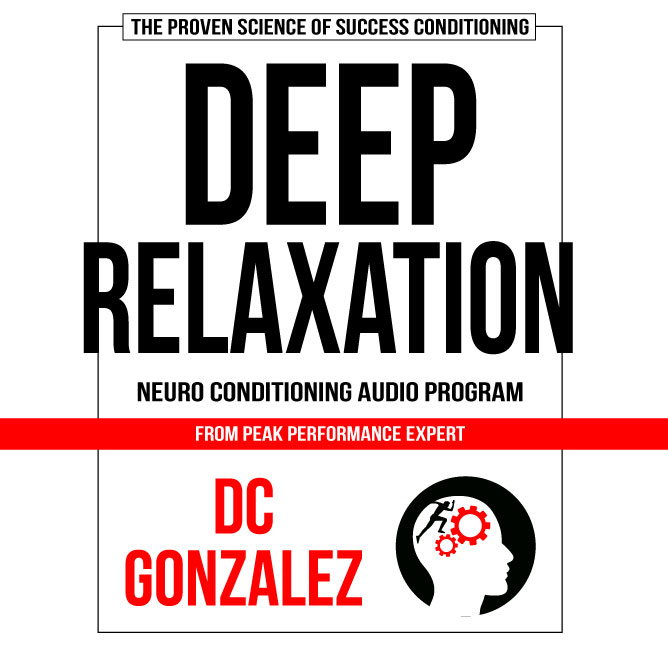Sports psychology for athletes is a pillar in the training of elite athletes worldwide. As an athlete, you undoubtedly comprehend the indispensability of physical training to your triumph. However, have you ever contemplated that your cognitive acuity is just as crucial as your bodily prowess? Enter sports psychology – a field that comprehends how your contemplations, sentiments, and demeanor impact your performance, empowering you to foster the intellectual prowess indispensable to excel in your athletic endeavors.
Tony Robbins, an illustrious motivational speaker, and life coach emphasizes the need to cultivate a robust mindset and vanquish limiting beliefs, while Dr. Michael Gervais, a high-performance psychologist who has worked with elite athletes and performers, emphasizes the indispensability of mental fortitude and resilience when confronting challenges. Together, these luminaries demonstrate how mental training can be the linchpin in the pursuit of sporting and extracurricular greatness.
In this article, we shall probe the mind-body interrelationship, the psychological elements that influence performance, and practical tactics for developing mental fortitude and resilience.
By the denouement of this article, you shall possess a profound comprehension of the intelligent edge and the mechanisms by which you can acquire it to elevate your performance to unprecedented heights.

The Role of Sports Psychology for Athletes in Performance
Sports psychology studies have shown that mental practice is as important as physical training for peak performance. Athletes can improve their mental skills for peak performance if they are aware of the role psychological elements play in their development.
One must have confidence in one’s abilities to reach one’s full intellectual potential. Confident athletes are more inclined to offer their all during competition. Sports psychology techniques can be used to increase and sustain self-efficacy, the conviction that one can succeed in a given situation.
Athletes’ mental health can be gauged in large part by their capacity for focused attention and concentration. In order to perform at their best, athletes must be able to tune out irrelevant information and retain concentration on the task at hand throughout the heat of competition.
The centrality of motivation and goal-setting in driving performance outcomes is frequently undermined despite their tremendous import. Indeed, athletes who possess a clearly-defined conception of their aspirations are more apt to allocate the requisite temporal and energetic resources toward realizing their desired outcomes. In this light, the counsel of sports psychologists could furnish athletes with invaluable guidance toward formulating objectives that not only meet the necessary standards of quality but also reside within the limits of feasibility.
Simply said, sports psychology is important because it gives players the mental tools they need to perform at their best. Athletes can gain the mental edge they need to achieve by practicing confidence, alertness, attentiveness, and desire.
Understanding the Mental Game
The pursuit of athletic excellence transcends mere physical prowess, for the mind-body interconnection plays a paramount role in achieving sporting success. Sports psychology furnishes athletes with the necessary tools to cultivate the mental acuity required for triumph, and the following are some crucial facets of the cerebral game:
- Mindset: The manner in which athletes cogitate and construe their aptitudes and limitations can exert an outsized influence on their performance. Cultivating a growth-oriented mindset engenders heightened motivation and a greater proclivity for risk-taking.
- Positive Self-Talk: The internal dialogue athletes engage in can wield a profound impact on their self-assurance and performance. Affirmative self-talk can kindle confidence and enable athletes to execute their best performances.
- Visualization and Imagery: Mental rehearsal, which entails athletes envisioning themselves excelling at their craft, can augment focus, bolster confidence, and enhance performance. Visualizing their objectives can engender motivation and spur athletes to strive toward achieving their aspirations.
- Coping Strategies: Employing coping strategies such as deep breathing, mindfulness, and relaxation techniques can empower athletes to regulate their emotions and excel under pressure.
Through honing these cerebral skills, athletes can transcend their limits and attain greater triumph in their respective sports, thereby deriving greater fulfillment and satisfaction. The mental game is equally as pivotal as the physical realm in athletics, and by assimilating and refining the mental edge, athletes can unleash their full potential.

Benefits of Sports Psychology for Athletes
Increased Confidence: Sports psychology helps athletes build their confidence and self-efficacy, which can lead to better performance on the field or court. By developing a positive mindset and learning effective coping strategies, athletes can approach challenges with greater confidence and resilience.
Sports Psychology for Athletes Results in Improved Focus
Sports psychology teaches athletes how to improve their focus and concentration. By learning how to tune out distractions and focus on the task at hand, athletes can achieve a state of flow that can lead to better performance.
Goal Setting
Sports psychology helps athletes set goals and develop plans to achieve them. By breaking down big goals into smaller, more manageable ones, athletes can stay motivated and on track toward success.
Better Communication and Teamwork
Sports psychology can also help athletes improve their communication skills and work better with their teammates. By developing better communication skills, athletes can reduce conflict and improve team cohesion.
Improved Decision Making
Sports psychology can help athletes make better decisions under pressure. By learning how to manage emotions and make effective decisions, athletes can avoid costly mistakes and perform at their best in high-pressure situations.
Coping with Stress and Pressure
Sports psychology provides athletes with tools to manage stress and pressure. By learning relaxation techniques, mindfulness, and other coping strategies, athletes can generally stay calm and focused even in the most challenging situations.
In summary, sports psychology can provide athletes with numerous benefits, including increased confidence, improved focus, better goal setting, improved communication and teamwork, better decision making, and coping with stress and pressure. By developing their mental game, athletes can unlock their full potential and achieve greater success on and off the field.
Conclusion
In conclusion, sports psychology is a tool of immense power that has the potential to aid athletes in improving their mental aptitude and achieving the utmost success in their respective sports. It is a discipline that teaches athletes how to effectively manage their emotions, build confidence and remain steadfast when faced with intense pressure. By mastering these skills, athletes can reach their full potential and perform at their absolute best in high-pressure situations.
What is truly captivating about sports psychology is that its benefits extend far beyond the playing field. The life skills that athletes learn through this discipline can generally benefit them in all areas of their existence. Whether athletes are novices or seasoned professionals, integrating sports psychology into their training and competition routines can provide them with an edge in terms of their mental fortitude. With the aid of sports psychology, athletes can attain their goals and reach new heights of success.
In the words of the esteemed thought leader, Tony Robbins, “80% of success is psychology, 20% is mechanics.” This implies that by emphasizing their mental game, athletes can position themselves for success not only on the field but in all other aspects of their life. Thus, it is vital for athletes to incorporate sports psychology into their regimen if they aspire to attain the pinnacle of success.






